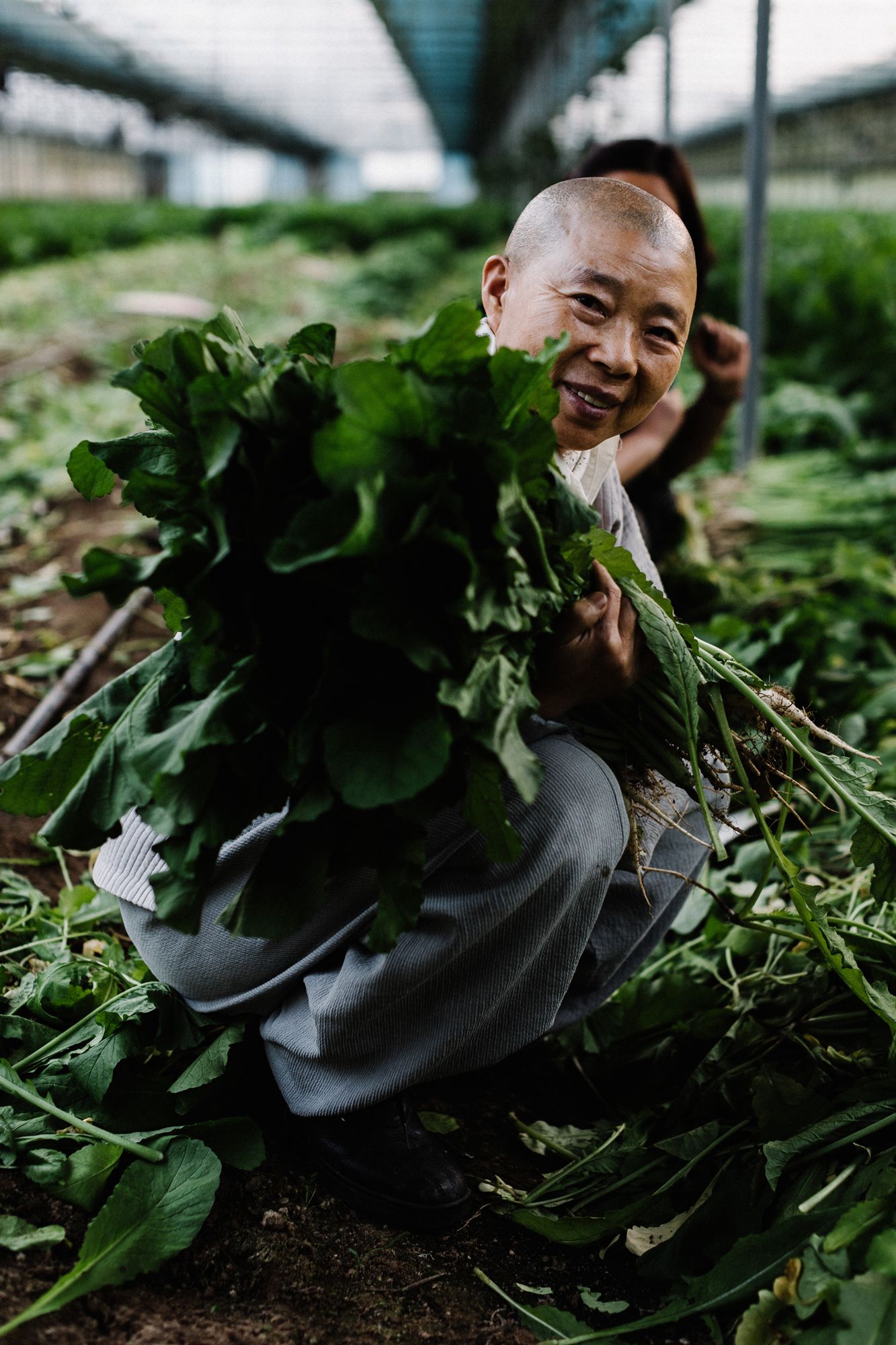The most recognised authority figure on Korean temple food shares her philosophy when it comes to cooking, and our relationship with nature.
At a one-night-only event at the Asia Society earlier this autumn, over 400 curious minds took a rare glimpse into the world of Korean temple cooking thanks to Jeong Kwan, the authority figure widely known as the philosopher chef, a term coined by journalist Jeff Gordiner two years ago in an evocative New York Times profile. But it wasn’t until the Korean nun’s appearance on the second series of Netflix’s Chef’s Table that Jeong Kwan’s story was shared on a global level, the humble figure becoming an overnight sensation.
Jeong Kwan’s food affair began at the age of 12. As a dutiful daughter, she prepared daily meals for her mother. The nature of these kitchen duties changed when she became a nun—for over 40 years, she has cooked for not only other nuns, but also for the masses who gather at the temple she stays at, the Chunjinam hermitage in Jeolla province in the south of South Korea.
Though she faced the shifting of priorities through cooking, Jeong Kwan was optimistic about these changes. “When I cooked for myself and other nuns, it is no longer just for fun. Instead it is my responsibility to use food as a bridge to help others reach enlightenment,” she explains. “It is a means for me to help them, hoping whoever consumes the food will get something out of it beyond physical satisfaction.”

Temple food, according to Jeong Kwan, is far from simply vegetarian as one might assume. Living in the remote monastery among the mountains means her diet relies on nature alone, with high regard and respect for seasonality. Simplicity may be key, but that’s not all there is.
“You need to have carbs. Basically, we will have rice, soups, and fermented foods. Kimchi, pickled vegetables, and wild plants that you can get from the mountains. The crucial thing is salt. We only use sea salt from the west coast of Korea. With the salt, I would make the sauces like soy sauce, fermented soybean pastes, and the quintessential Korean chilli sauce. If it’s in season, wild plants and vegetables are mostly just blanched and served with sauces. If it’s out of season, like winter for instance, you can dry it rehydrate it for later,” explained Jeong Kwan. “For depth in our food we would use a lot of sesame seeds in different forms—whole, powder, paste, and dressing for our blanched vegetables. We can also add sweetness from our homemade brown rice syrup, and sansho peppers harvested from the countryside. In other words, it is nature that gives us our daily food. It takes care of our seasoning, too.”
Seasonality is an essential factor to consider for Korean temple cooking, as Jeong Kwan practices farming all year round, harvesting leafy greens and fruits throughout spring and summer, and root vegetables for autumn. During the seasons of abundance, she would preserve the harvest for the cold winter ahead. “Cabbage, aubergines, and cucumbers are the most popular choices for making kimchi, but other wild greens and vegetables can be used as well.”


